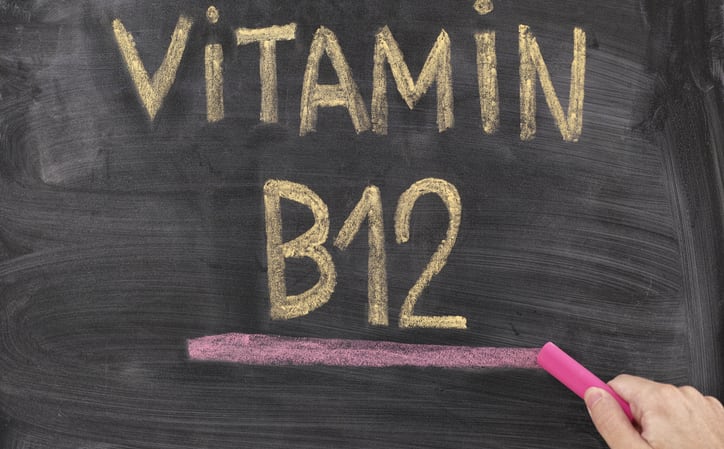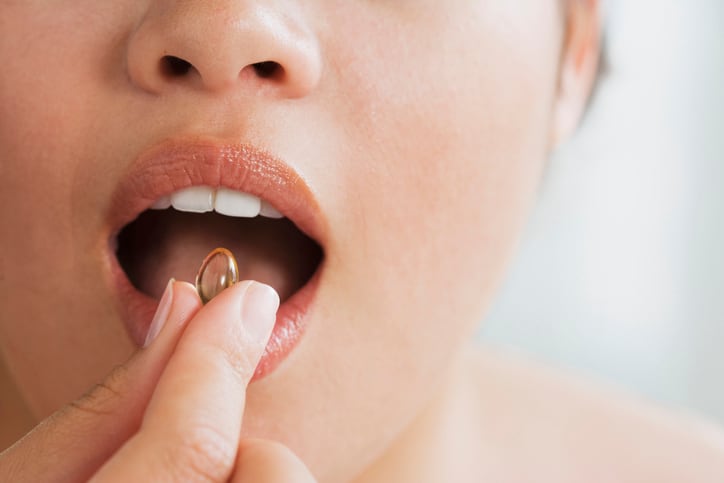New international guidelines have been published for the treatment of mental health with nutraceuticals and phytoceuticals, an indication of growing recognition that nutritional supplementation has a role to play alongside conventional care in treating psychiatric conditions.
Designed to assist clinicians in deciding which nutraceuticals are beneficial in the management of psychiatric decisions, the guidance grades over 20 nutraceuticals (nutrient-based natural products) and phytoceuticals (plant-based natural products) that have been evaluated in rigorous double-blind randomised clinical trials. The only two interventions awarded the top +++ ‘Recommended’ rating were omega-3 fatty acids and St John’s wort for mood disorder treatment.
In order to develop the new guidelines, the World Federation of Societies of Biological Psychiatry (WFSBP) and the Canadian Network for Mood and Anxiety Treatments (CANMAT) convened an international taskforce involving 31 leading academics and clinicians from 15 countries.
The taskforce undertook two meta-reviews of the literature: one on nutraceuticals (Firth et al, 2019) and the other one on phytoceuticals (Sarris, Marx et al, 2020). The researchers also performed a search of additional relevant meta-analyses and randomised clinical trials, omitting inclusion of studies with weak or limited evidence, such as case studies, open label studies and isolated clinical trials.
They assessed both the level and strength (or weakness) of the evidence to determine whether the intervention was ‘Recommended’ (+++), ‘Provisionally recommended’ (++), ‘Weakly recommended’ (+), ‘Not currently recommended’ (+/-) or ‘Not recommended’ (-) for a particular condition.
The findings of the taskforce revealed over two dozen nutraceuticals and phytochemicals that have been evaluated in robust double-blind randomised clinical trials.
“Equivalent to antidepressants”
The review found that St John’s wort was “equivalent to antidepressants” in its efficacy at treating major depressive disorder. In the case of omega-3 fatty acids, the taskforce concluded that “meta-analytic results have shown supportive evidence for efficacy in treating major depressive disorder, while use as a monotherapy is weaker”. They said that omega-3 may be more beneficial in people with raised inflammatory markers, obese patients and people with dietary deficiencies.
Recommendations for all of the treatments (with daily dosages) are summarised as follows:
Mood disorders
- Recommended (+++): adjunctive (co-use with antidepressants) omega-3 fatty acids (1-2g of EPA or EPA/DHA) and monotherapy St John’s wort (600-1800mg standardised to hypericin 0.2/0.3% and/or 5-6% hyperforin)
- Provisionally recommended (++): adjunctive probiotics (1-10 billion colony forming units), zinc (25mg), methylfolate (15mg), and adjunctive or monotherapy saffron (30mg per day of stigma standardised to safranal or crocin isomers) and curcimin (500-1000mg)
- Weakly recommended (+): adjunctive or monotherapy vitamin D (1500-4000 IU) and lavender (80-160mg oil in capsule form or 500mg-1.5g dried flower standardised to linalool), monotherapy probiotics and adjunctive s-adenosyl-methionine (800-3200mg)
- Not currently recommended (+/-): adjunctive or monotherapy rhodiola, n-acetyl cysteine, vitamin C, tryptophan, creatine; monotherapy omega-3 fatty acids and s-adenosyl-methionine
- Not recommended (-): adjunctive or monotherapy folic acid, magnesium and inositol
Anxiety disorders
- Provisionally recommended (++): adjunctive or monotherapy ashwagandha (300-600mg standardised to 5% withanolides) and lavender (80-160mg oil in capsule form or 500mg-1.5g dried flower standardised to linalool)
- Weakly recommended (+): adjunctive n-acetyl cysteine (2-3g) and monotherapy galphimia (350-700mg standardised to galphimime-B)
- Not currently recommended (+/-): chamomile
- Not recommended (-): kava (in generalised anxiety disorder)
Schizophrenia
- Provisionally recommended (++): adjunctive n-acetyl cysteine (1-3g) and methylfolate (1-15mg)
- Weakly recommended (+): adjunctive ginkgo (120-160mg 2-3% ginkgoflavones)
- Not recommended (-): adjunctive and monotherapy omega-3 fatty acids, adjunctive vitamin D
ADHD
- Weakly recommended (+): monotherapy micronutrients (8-12 capsules) and adjunctive or monotherapy vitamin D (1500-1400 IU)
- Not currently recommended (+/-): adjunctive or monotherapy omega-3 fatty acids, zinc and ginkgo
- Not recommended (-): adjunctive or monotherapy omega-9 fatty acids and ALC (acetyl-L-carnitine).
The guidelines update the CANMAT 2009 and 2016 guidelines to reflect progress in research and to concentrate solely on nutraceuticals and phytoceuticals rather than covering a broad range of complementary therapies.
They provide a “range of recommendations for the evidence-based application of nutraceuticals and phytoceuticals in field of psychiatry, which can now be adopted and integrated globally into psychiatric treatment protocols”.
Source: The World Journal of Biological Psychiatry
Published online: doi.org/10.1080/15622975.2021.2013041
“Clinician guidelines for the treatment of psychiatric disorders with nutraceuticals and phytoceuticals: The World Federation of Societies of Biological Psychiatry (WFSBP) and Canadian Network for Mood and Anxiety Treatments (CANMAT) Taskforce”
Authors: Sarris J et al.




